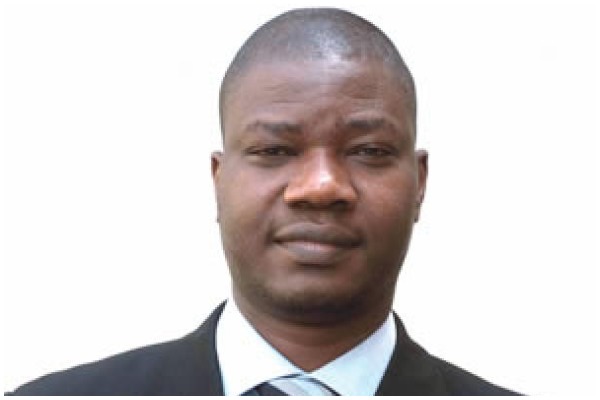
Barely 15 minutes after last Monday, July 31, President Bola Tinubu’s national broadcast on relief packages to ameliorate the removal of fuel subsidy, I was privileged to analyse the speech on Nigerian Television Authority programme called “Nigeria Today.” The programme ran from 7:30pm to 8pm. On set with me was Dr Mainasara Umar while the anchor was Lydia Ochi. Truth be told, these relief packages are long-awaited and it would seem the president had to make the speech in order to pull the rug off the feet of the Nigeria Labour Congress and its affiliates who are adamant to go on nationwide protests. As of the time of writing this piece yesterday, it is unclear if the NLC will still be embarking on the protests more so as there have been Federal Government team marathon meetings with the unions in the last 72 hours.
Before examining the intervention programmes rolled out by the president in his broadcast, I dare say that it would have been tidier if the interventions aimed at cushioning the subsidy removal had been thought out, agreed to with state and local governments as well as the labour unions before the end date of the subsidy. Former President Muhammadu Buhari signed the Petroleum Industry Act into law on Monday, August 16, 2021. That was when the subsidy should have been removed but in order to adequately prepare for the aftermath, 18 months’ grace period was given before the terminal date. We were also recently informed that Buhari failed to remove subsidy on petrol as directed in the PIA because, among other reasons, doing so would have cost his party the 2023 general elections, according to former Senior Special Assistant, Media and Publicity to Buhari, Mallam Garba Shehu, in a June 26, 2023 statement.
So what did Buhari do to ensure smooth removal of subsidy? First, he was hoping the Dangote Refinery would be operational by June 2023 and that the turnaround maintenance being carried out on our moribund refineries in Port Harcourt, Warri and Kaduna would have been completed before the inauguration of the incoming administration. This did not happen. Second, he approved a 40 per cent increase in peculiar allowance for Federal Government workers. Third, he got an $800m facility from the World Bank to be shared out to the poorest of the poor under the Conditional Cash Transfer. These measures have proven to be highly inadequate as the cost of living has risen astronomically since the formal announcement of the removal of fuel subsidy on May 29, 2023 by the incumbent President.
The lack of solid and comprehensive preparation for the exit of the subsidy regime has made the administration of the new president unpopular so much so that his words of “letting the poor breathe” are now being quoted back to him. Hear the president on his assessment of the current situation: “Our economy is going through a tough patch and you are being hurt by it. The cost of fuel has gone up. Food and other prices have followed it. Households and businesses struggle. Things seem anxious and uncertain. I understand the hardship you face. I wish there were other ways. But there is not. If there were, I would have taken that route as I came here to help not hurt the people and nation that I love.”
In order to ameliorate the sufferings of Nigerians arising from the harsh economic situation being faced at present, the president expatiated on his plans as follows: “To strengthen the manufacturing sector, increase its capacity to expand and create good-paying jobs, we are going to spend N75bn between July 2023 and March 2024. Our objective is to fund 75 enterprises with great potential to kick-start a sustainable economic growth, accelerate structural transformation and improve productivity. Each of the 75 manufacturing enterprises will be able to access N1bn credit at nine per cent per annum with maximum of 60 months’ repayment for long-term loans and 12 months for working capital.”
He promised to energise the micro, small and medium enterprises sector with N125bn. Out of the sum, N50bn will be spent on Conditional Grant to one million nano businesses between now and March 2024. The target is to give N50,000 each to 1,300 nano business owners in each of the 774 local governments across the country. Similarly, 100,000 MSMEs and start-ups will be supported with N75bn. Under this scheme, each enterprise promoter will be able to get between N500,000 and N1m at nine per cent interest per annum and a repayment period of 36 months.
The president said he had ordered the release of 200,000 metric tonnes of grains from strategic reserves to households across the 36 states and FCT to moderate prices. He said his administration would also be providing 225,000 metric tonnes of fertiliser, seedlings and other inputs to farmers who are committed to its food security agenda. Quite unfortunately, the farming season is almost gone for this year. Perhaps, this intervention will be most impactful on next year’s farming season.
Tinubu said N200bn out of the N500bn approved by the National Assembly for subsidy relief packages would be disbursed as follows: N50bn each would be used to cultivate 150,000 hectares of rice and maize. N50bn each would also be earmarked to cultivate 100,000 hectares of wheat and cassava. This amount is significant but the question is, what has happened with the over N1tn spent on the Anchor Borrowers’ Programme funded by the Central Bank of Nigeria under Buhari’s government. I suggest there should be an audit of the ABP and see if this N200bn can be channeled to further boost that initiative.
The president said he had approved the Infrastructure Support Fund for the states. This new Infrastructure Fund will enable states to intervene and invest in critical areas and bring relief to many as well as revamp decaying healthcare and educational infrastructure. The fund is expected to bring improvements to rural access roads to ease the evacuation of farm produce to markets. It is important to publish how much this ISF is and whether it is a grant or loan to the state governments. Tinubu made mention of the provision to invest N100bn between now and March 2024 to acquire 3,000 units of 20-seater CNG-fuelled buses. These buses are to be shared to major transportation companies in the states, using the intensity of travel per capital. Participating transport companies will be able to access credit under this facility at nine per cent per annum with 60 months’ repayment period.
Tinubu said his government was working in collaboration with the Labour unions to introduce a new national minimum wage for workers. However, the NLC said the sub-committee on wage award had not been inaugurated and had not met. So are the workers to wait till 2024 when the review is actually due after the last exercise?
These commitments are all laudable but many Nigerians are cynical that much of these resources may be lost to corruption in the course of procurement, compilation of beneficiaries of the loans and even the grains distribution. Don’t blame my compatriots, many similar initiatives have achieved little or nothing. Imagine that over N1tn was spent on the ABP by the CBN without much to show for it. Many who got the loans under the scheme never paid back. In fact, most of the loan-granting policies of the government lead to a high level of default in terms of repayment. How are we sure this N500bn intervention will not go down the drain or benefit the undesirables? It is important to therefore have a transparency and accountability framework in place. It is important to know how the 75 beneficiaries of the N1bn loan and other loans will be shortlisted. Will there be collateral in order to offset any default in repayment? Nigerians patiently wait for the roll-out.





